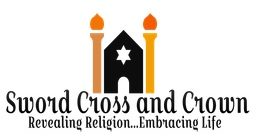
The Gospel of God was prophesied of in the Old Testament
As a Mormon, I was told that the Book of Mormon was the most ‘correct’ book in the world, and that the Bible had been translated incorrectly. In studying for my doctorate in Theology I did a lot of research about the Bible. The books written by Norm Geisler, a biblical apologist and scholar (who just recently passed away) were particularly helpful. Before continuing my writing through the letter to the Romans, I thought some background information about the Bible itself would be helpful. The following information is from Geisler’s book, From God to Us: How we got our Bible. “The Bible has two major parts: the Old Testament and the New Testament. The Old Testament was written and preserved by the Jewish community for a millennium or more before the time of Christ. The New Testament was composed by disciples of Christ during the first century A.D. The word testament, which is better translated ‘covenant,’ is taken from the Hebrew and Greek words designating a compact or agreement between two parties. In the case of the Bible, then, we have the old contract between God and His people, the Jews, and the new compact between God and Christians. Christian scholars have stressed the unity between these two Testaments of the Bible in terms of the person of Jesus Christ who claimed to be its unifying theme. St. Augustine said the New Testament is veiled in the Old Testament, and the Old Testament is unveiled in the New Testament. Or, as others have put it, ‘The New is in the Old concealed, and the Old is in the New revealed’ (Geisler 7-8).”
The Divine inspiration of the Bible
Geisler wrote – “It is the Bible which is inspired and not the human authors…God is the Prime Mover in the inspiration of the Bible…God spoke to the prophets first and then through them to others. God revealed, and men of God recorded the truths of faith…The prophets who wrote Scripture were not automatons…The personalities of the prophets were not violated by a supernatural intrusion…The final product of divine authority working through the prophetic agency is the written authority of the Bible…The Bible is the last word on doctrinal and ethical matters. All theological and moral disputes must be brought to the bar of the written Word. The Scriptures derive their authority from God through His prophets. Nevertheless, it is the prophetic writings and not the writers as such which possess and retain the resultant divine authority” (Geisler 13-14).
The historic reliability of the Old Testament
The Old Testament has been shown to be reliable in the following three ways: (1) textual transmission (the accuracy of the copying process down through history); (2) its confirmation by hard evidence uncovered through archaeology; and (3) confirmation by history reported outside of the Bible (McDowell 103). Before the Dead Sea Scrolls were found in 1947, the oldest complete Hebrew manuscripts of the Old Testament were from A.D. 900. As part of the Dead Sea Scrolls, a complete Hebrew manuscript of Isaiah was found dating from around 125 B.C…Gleason Archer states that the Isaiah copies of the Qumran community ‘proved to be word for word identical with our standard Hebrew Bible in more than 95 percent of the text (McDowell 15).
Romans 1: 1-2 “Paul, a bondservant of Jesus Christ, called to be an apostle, separated to the gospel of God which He promised before through His prophets in the Holy Scriptures.”
“The Old Testament, written over a thousand-year period, contains more than three hundred references to the coming Messiah. All of these were fulfilled in Jesus Christ, and they establish a solid confirmation of His credentials as the Messiah” (McDowell 193).
How was the gospel promised through the prophets in the Old Testament?
The first mention of the gospel is found in Genesis 3: 15 – “And I will put enmity between you and the woman and between your seed and her Seed; He shall bruise your head, and you shall bruise His heel.” This verse refers to the age-long conflict and struggle between Jesus, the Messiah of Israel; and Satan, the enemy of God (McDowell 198).
The prophet Isaiah prophesied: “Therefore the Lord Himself will give you a sign: Behold, the virgin shall conceive and bear a Son, and shall call His name Immanuel.” (Isaiah 7: 14) Jesus would miraculously be born of a virgin. We find in Psalms Messianic prophecies about Jesus like the following: “I will declare the decree: The Lord has said to Me, ‘You are My Son, today I have begotten You.” (Psalm 2: 7) The ancient Jews believed that this Psalm foretold the Messiah (McDowell 199-200).
Micah, the prophet prophesied: “But you, Bethlehem Ephrathah, though you are little among the thousands of Judah, yet out of you shall come forth to Me the One to be Ruler in Israel, whose goings forth are from of old, from everlasting.” (Micah 5: 2) Jesus was born in Bethlehem (McDowell 204).
Jesus would be a Prophet. This was prophesied in Deuteronomy: “I will raise up for them a Prophet like you from among their brethren, and I will put My words in His mouth, and He shall speak to them all that I command Him.” (Deut. 18: 18) Jesus would be a Priest. “The Lord has sworn and will not relent, ‘You are a priest forever according to the order of Melchizedek.’” (Psalm 110: 4) Jesus is a Judge. “For the Lord is our Judge, the Lord is our Lawgiver, the Lord is our King; He will Save us.” (Isa. 33: 22) (McDowell 209-210)
Jesus is Judge, Lawgiver, and King. He alone can be the leader of a theocracy on earth. Jesus would be preceded by a Messenger. “A voice of one crying in the wilderness: ‘Prepare the way of the Lord; Make straight in the desert a highway for our God.’” (Isa. 40: 3) John the Baptist was the prophet crying in the wilderness ‘Repent, for the kingdom of heaven is at hand!’ (McDowell 210-213)
Jesus would perform miracles. “Then the eyes of the blind will be opened, and the ears of the deaf will be unstopped. Then the lame will leap like a deer, and the tongue of the dumb will shout for joy.” (Isa. 35: 5-6) Jesus would enter Jerusalem on a donkey. “Rejoice greatly, O daughter of Zion! Shout, O daughter of Jerusalem! Behold, your King is coming to you; He is just and having salvation, humble, lowly and riding on a donkey, a colt, the foal of a donkey.” (Zechariah 9: 9) Jesus would be a ‘stone of stumbling’ to the Jews. “The stone which the builders rejected has become the chief cornerstone.” (Psalm 118: 22) He would be a ‘light’ to the Gentiles. “And Gentiles shall come to your light, and kings to the brightness of your rising.” (Isa. 60: 3) (McDowell 213-215).
Jesus would be resurrected. “For you will not leave my soul in Sheol; nor will You allow Your Holy One to see corruption.” (Psalm 16: 10) Jesus would be betrayed by a friend. “Even my familiar friend in whom I trusted, who ate my bread, has lifted up his heel against me.” (Psalm 41: 9) He was betrayed by His disciple Judas Iscariot. Jesus would be sold for thirty pieces of silver. “Then I said to them, ‘If it is agreeable to you, give me my wages; and if not, refrain.’ So they weighed out for my wages thirty pieces of silver.” (Zech. 11: 12) Jesus would be forsaken by His disciples. “Strike the Shepherd, and the sheep will be scattered.” (Zech. 13: 7)(McDowell 216-219)
Jesus was silent before His accusers. “He was oppressed and He was afflicted, yet He opened not His mouth.” (Isa. 53: 7) He was wounded and bruised. “For He was wounded for our transgressions, He was bruised for our iniquities; the chastisement for our peace was upon Him, and by His stripes we are healed.” (Isa. 53: 5) His hands and feet were pierced. “They pierced my hands and My feet.” (Psalm 22: 16) He was crucified with thieves. “Because He poured out His soul unto death, and He was numbered with the transgressors.” (Isa. 53: 12)(McDowell 219-222)
Paul was ‘separated’ to the gospel of God
Paul had at one time been ‘separated’ to the laws and traditions of the Jews when he was a Pharisee. However, when Paul surrendered to Christ, he was set apart for preaching the gospel or the ‘good news’ that Christ died for our sins, was buried, and rose again, and could save all those who trust Him. This gospel was not invented by man like other false gospels are, but is truly the gospel of God (Weirsbe 410).
REFERENCES:
Geisler, Norman L. From God to Us: How we got our Bible. Chicago: Moody Press, 1974.
McDowell, Josh. Evidence for Christianity. Nashville: Thomas Nelson Publishers, 2006.
Wiersbe, Warren W. The Wiersbe Bible Commentary. Colorado Springs: David C. Cook, 2007.
https://answersingenesis.org/is-the-bible-true/3-evidences-confirm-bible-not-made-up/
https://jewsforjesus.org/answers/top-40-most-helpful-messianic-prophecies/


